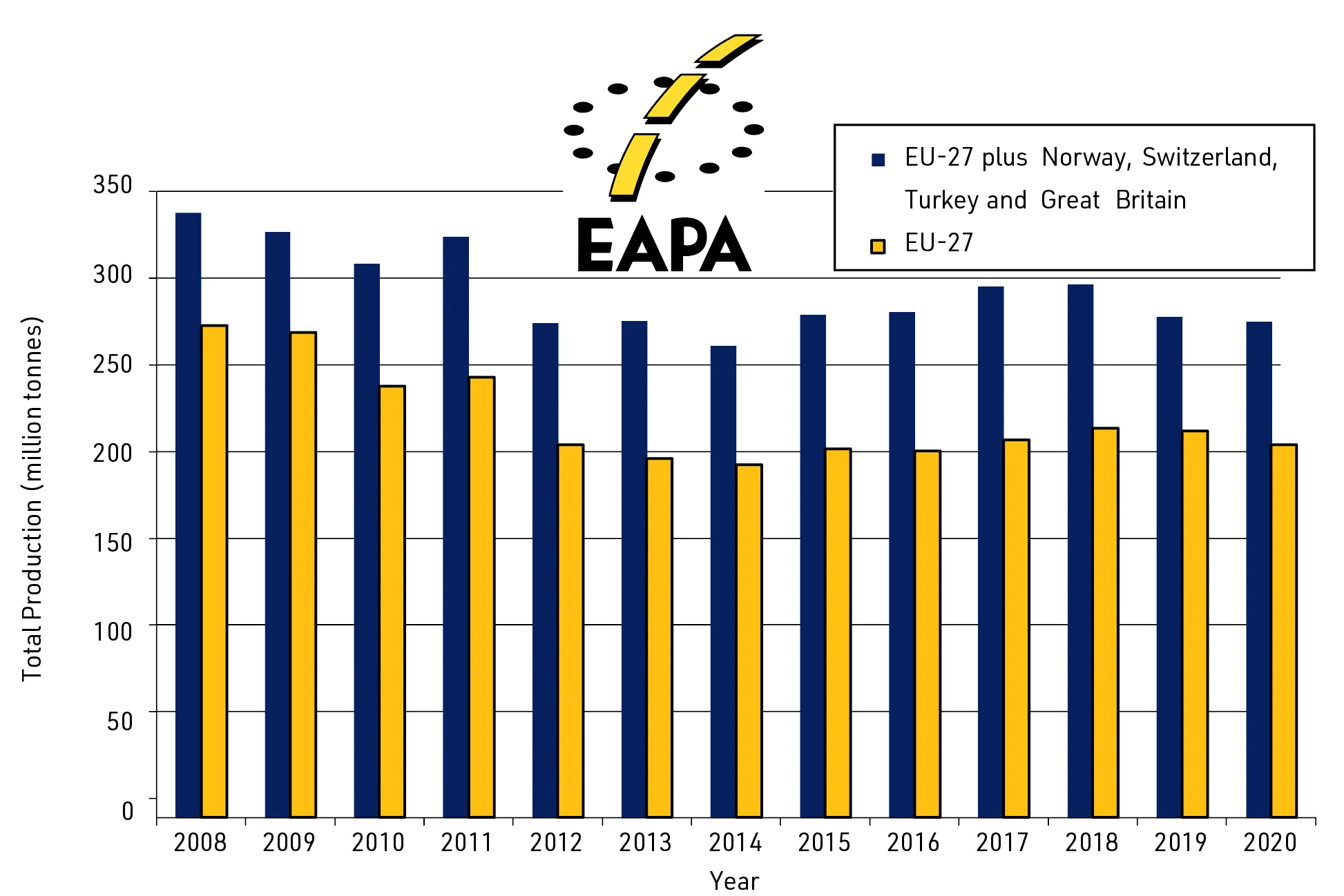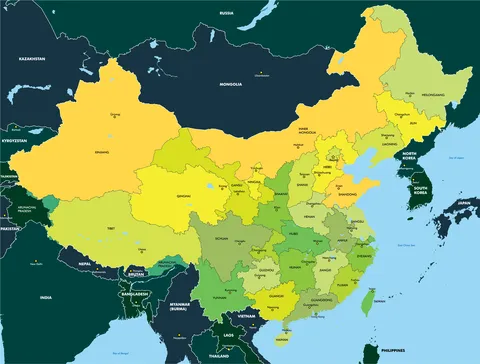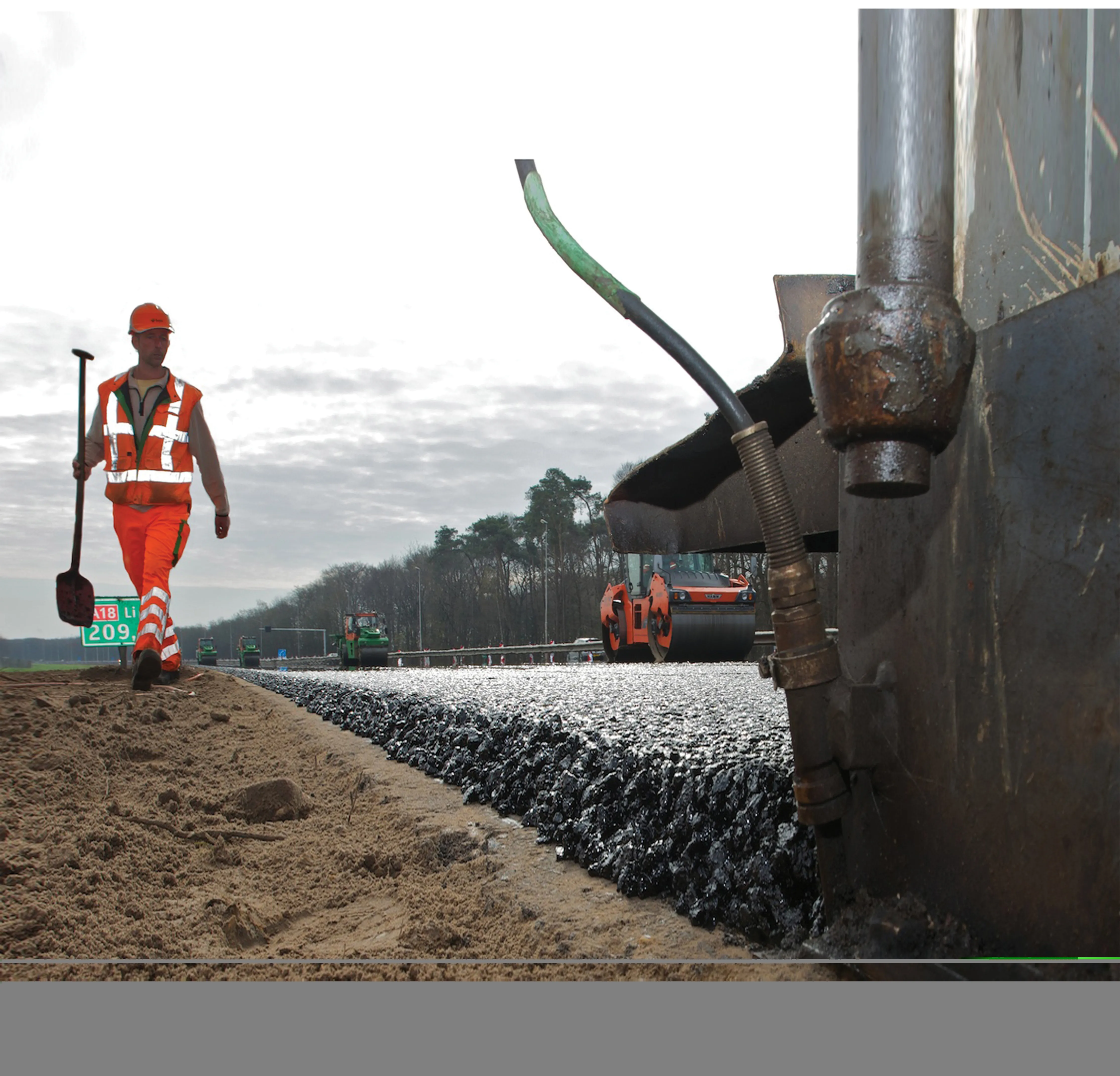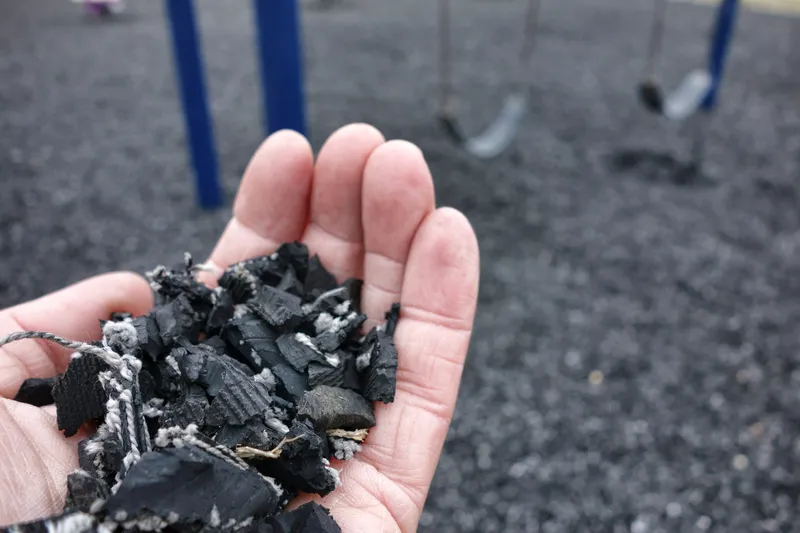Europe has seen steady demand for asphalt during the pandemic.
By MJ Woof
January 4, 2022
Read time: 2 mins

Data from the European Asphalt Pavement Association (EAPA) shows that demand for asphalt during the pandemic stayed comparatively steady. For 2020, the total production of hot and warm mix asphalt decreased by 3.7% to 208.3 million tonnes for EU-27. However, when data from Great Britain, Norway, Switzerland and Turkey is factored into the equation, the total production reduced by only 1% to 276.9 million tonnes. These reductions are most likely driven by the Covid-19 crisis but, as some projects were still ongoing in 2020, the figures of 2021 will be key to assess the actual impact of the pandemic in the sector.
In 2020, the main asphalt producer was Germany with 38 million tonnes, followed by France at 31.9 million tonnes and Turkey at 31.7 million tonnes. The case of Turkey is especially relevant, as after the 43.6% drop for 2019 compared with 2018 (from 41.7 million tonnes to 23.5 million tonnes), production recovered by 34.9% in 2020.
Reclaimed asphalt was used in 17 European countries providing data: Austria, Belgium, Croatia, Czech Republic, Denmark, Finland, France, Germany, Great Britain, Hungary, Ireland, Norway, Romania, Slovakia, Slovenia, Spain and Turkey. The total amount available in these countries was 46.4 million tonnes. The leading countries were Germany at 11.6 million tonnes (25% of the total), France at 6 million tonnes (13%) and Great Britain at 5 million tonnes (11%). Data from Italy was not provided for 2020, but was estimated at around 9.5 million tonnes (20%).
In 14 European countries, the Czech Republic, Denmark, Finland, France, Germany, Great Britain, Hungary, Ireland, Norway, Romania, Slovakia, Slovenia, Spain and Turkey, reclaimed asphalt was used for a variety road building tasks. In these countries, a total of 27.4 million tonnes of reclaimed asphalt was available, out of which, 64% was re-used, 33% was recycled and only 3% was used on unknown applications or sent to landfill.
The production of warm mix asphalt (WMA) has been increasing in recent years, reaching new heights in 2020 with a production of 8.3 million tonnes. European champion in WMA production was France with 4.1 million tonnes, followed by Norway at 1.9 million tonnes. It is of note to see the increase in use of WMA in Norway, where production in 2020 was almost four times that of 2016.








